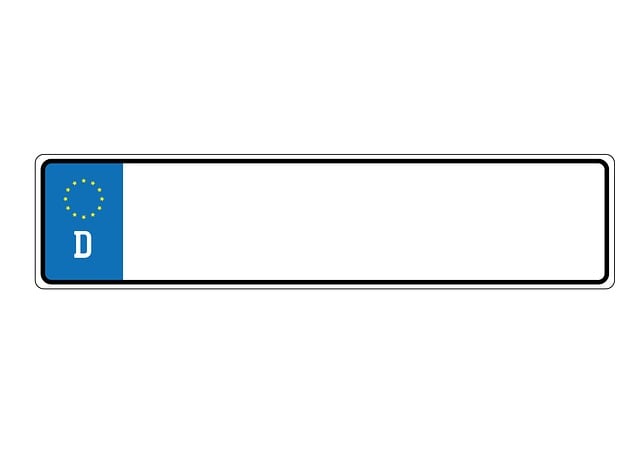The rise of untraceable vehicles in the digital age poses challenges for public safety due to obscured license plates. Select License Plate Privacy, where owners obscure registration details, is a debated solution. Proponents cite privacy protection, while critics argue it facilitates illicit activities. Balancing privacy and security through advanced technologies like microscopic patterns or specialized coatings is crucial as consumer demand grows. Future trends include wider adoption of Select License Plate Privacy options to enhance vehicle tracking security in an increasingly digital world.
Untraceable vehicles are a growing concern in today’s digital age, raising questions about license plate privacy. As technology advances, so does the potential for anonymous vehicle ownership, posing challenges to law enforcement and security. This article explores the legal perspective on license plate privacy, technological innovations enabling anonymity, benefits of untraceable identification, associated risks, and future trends in vehicle tracking. Understanding these dynamics is crucial in navigating the complex landscape of vehicle identification and public safety.
- Untraceable Vehicles: The Growing Concern
- License Plate Privacy: A Legal Perspective
- Technological Advances in Anonymity
- Benefits of Untraceable Identification
- Challenges and Risks to Consider
- Future Trends in Vehicle Tracking
Untraceable Vehicles: The Growing Concern

Untraceable vehicles are a growing concern in today’s digital age. With advancements in technology, it has become increasingly easier for individuals to alter or disguise their vehicle registration details, making it nearly impossible for authorities to track and identify them. This trend poses significant challenges to law enforcement and public safety, as unrecognizable car number plates hinder the efficient investigation of crimes and traffic infractions.
One popular method used to achieve untraceable vehicle identification is the selective license plate privacy. By employing innovative techniques, owners can obscure or replace their vehicle’s registration information, making it unreadable to automatic plate recognition systems. While some argue that this level of anonymity protects individual privacy, others contend that it facilitates illicit activities such as evading legal responsibilities and contributing to a culture of impunity on the roads. The growing prevalence of untraceable cars highlights the need for balanced regulations that safeguard privacy while ensuring public security.
License Plate Privacy: A Legal Perspective

In many jurisdictions, the issue of license plate privacy has sparked legal debates due to the increasing demand for untraceable vehicle identification. The right to privacy and the need for public safety often clash when discussing the visibility of vehicle registration details. On one hand, select license plate privacy advocates argue that obscuring or removing license plates can protect individuals from identity theft and surveillance. Unreadable license plate labels and the use of unnoticeable license plate protection are seen as viable security measures to prevent unauthorized access to personal information.
On the other hand, law enforcement agencies and government bodies emphasize the importance of clear license plate visibility for traffic monitoring, accident investigations, and criminal pursuits. They argue that license plate obscurants for security can hinder their ability to effectively enforce traffic laws and track down criminals. Balancing these contrasting perspectives is essential in crafting legislation that respects individual privacy while ensuring public safety and order on the roads.
Technological Advances in Anonymity

The digital age has brought about remarkable technological advances, and one area where this is evident is in the realm of vehicle identification and privacy. With concerns over data security and personal privacy at an all-time high, individuals are seeking ways to protect their information—including their car’s license plates. This has led to a surge in demand for discreet car identification films and car plate privacy films, offering innovative solutions for maintaining anonymity on the roads.
These cutting-edge technologies employ advanced materials and designs that obstruct the clear view of license plates from the outside while ensuring compliance with local regulations. By integrating microscopic patterns or specialized coatings, these films deter license plate theft and unauthorized tracking, providing an extra layer of security. With their ability to balance privacy and legality, select license plate privacy solutions are transforming the way vehicle owners safeguard their identity while navigating public spaces.
Benefits of Untraceable Identification

Untraceable vehicle identification offers several benefits, particularly in safeguarding personal information and enhancing security. One of the key advantages is the protection it provides against license plate theft or unauthorized access to vehicle registration details. By implementing a robust system, such as select license plate privacy screens, individuals can deter license plate theft, which has been on the rise due to the valuable data captured by these plates. This technology acts as a reliable license plate privacy guard, ensuring that only authorized personnel can trace and identify vehicles.
Moreover, untraceable identification contributes to a higher level of vehicle registration privacy. It helps individuals maintain their anonymity while still enabling law enforcement to efficiently manage traffic and enforce regulations. These privacy screens are designed with advanced cryptographic methods, making it nearly impossible for unauthorized parties to retrieve or trace personal information linked to a specific vehicle.
Challenges and Risks to Consider

Implementing untraceable vehicle identification systems comes with its fair share of challenges and risks that must be carefully navigated. One of the primary concerns is maintaining a balance between privacy and security, especially when discussing select license plate privacy options. As consumers increasingly demand more discreet ways to protect their personal information, manufacturers must develop non-identifiable vehicle plates that still allow for effective regulatory compliance.
Additionally, the rise of license plate privacy covers and guards has sparked debates about their legality and effectiveness in truly shielding vehicle data. While these accessories may obstruct standard license plate readings, they often leave room for advanced scanning technologies to decipher underlying plate information. As such, it’s crucial to consider both technological advancements and regulatory frameworks that govern vehicle identification to ensure robust protection against unauthorized tracking while adhering to legal requirements.
Future Trends in Vehicle Tracking

As technology advances, future trends in vehicle tracking will likely focus on enhancing privacy and security measures. One notable development is the increased adoption of select license plate privacy options. Innovations such as untraceable license plate films or online tools to hide car tags offer individuals a greater sense of control over their vehicle’s identifying information. These privacy solutions are designed to prevent unauthorized access to personal data, ensuring drivers can maintain a certain level of anonymity on the road.
The move towards more robust vehicle privacy is driven by growing concerns about data security and surveillance. By implementing advanced encryption techniques and secure storage systems, car manufacturers and tech companies aim to safeguard against potential cyber threats. Additionally, the development of vehicle privacy license plate films will enable drivers to balance their need for safety and tracking with their desire for enhanced confidentiality in an increasingly digital world.
As we’ve explored, untraceable vehicle identification raises complex issues around balance between personal privacy and public safety. While technological advancements offer exciting possibilities for enhanced anonymity, they also present significant challenges. The debate over license plate privacy is far from settled, with legal perspectives continuing to evolve alongside rapid technological changes. Looking ahead, future trends in vehicle tracking will likely hinge on striking a delicate equilibrium between these competing interests. Implementing robust security measures and transparent governance frameworks will be crucial in navigating this dynamic landscape, ensuring both the benefits of untraceable identification and mitigating associated risks. Selecting appropriate privacy protections, such as those that respect individual rights while enabling effective law enforcement, will remain a key focus for policymakers, technologists, and society at large.
